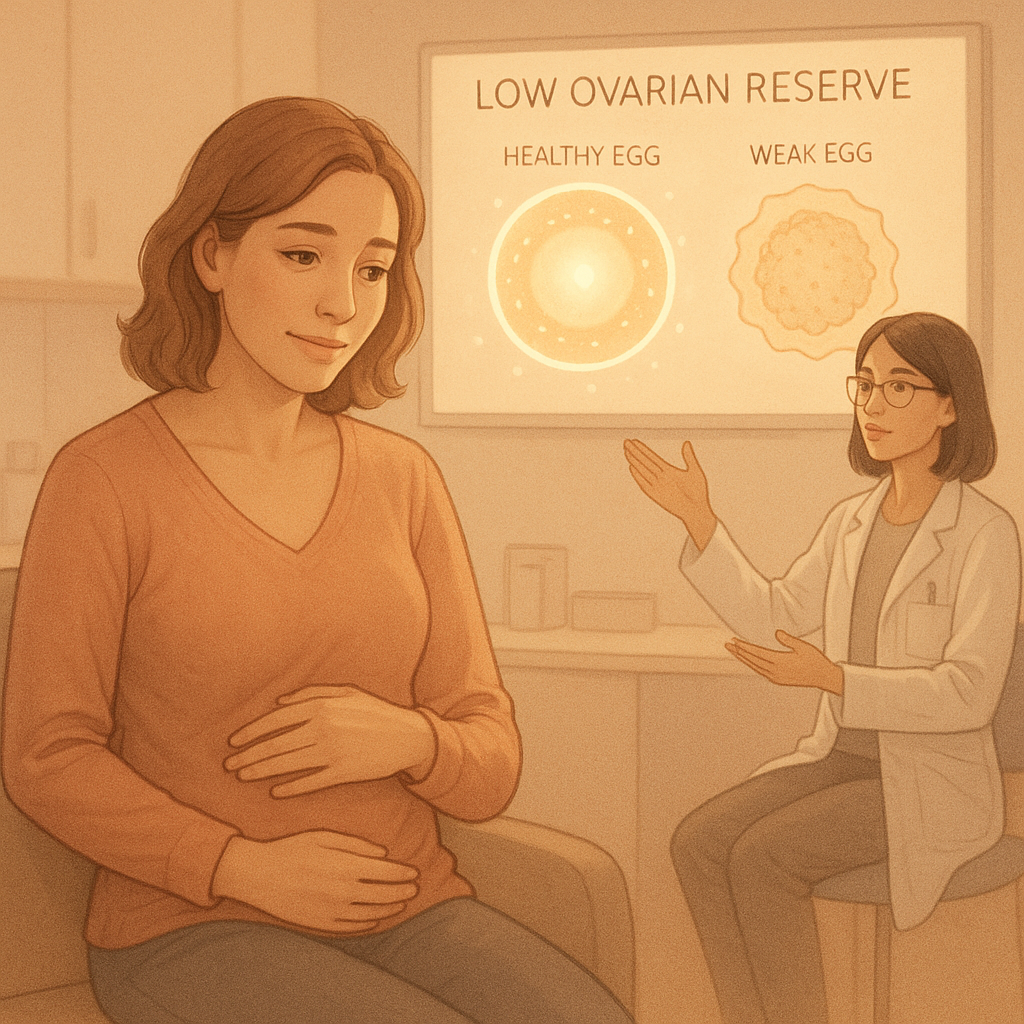
Menopause is a natural phase of life where women’s menstrual cycles cease, and fertility significantly declines. It typically occurs between the ages of 40 and 55. So, is it possible to get pregnant after menopause? The answer is yes. However, it is important to understand the various stages of this period and their effects on fertility.
The Menopause Process and Fertility
Menopause is not a sudden event; it includes stages such as perimenopause, menopause, and postmenopause. These stages can last months or even years. During perimenopause, the chance of pregnancy decreases but is still possible. After this period, natural conception is not possible, but assisted reproductive techniques, particularly in vitro fertilization (IVF), remain an option.
Pregnancy During Perimenopause
Perimenopause starts 3 to 5 years before menopause. During this stage, estrogen levels drop significantly, which reduces fertility.
Symptoms and Signs:
- Changes in Menstrual Cycle: The menstrual cycle becomes irregular. You might have periods every two to three weeks, or you might skip periods for a month. Menopause is diagnosed when you have not had a period for a year.
- Other Symptoms: Vaginal dryness, hot flashes, night sweats, sleep problems, anxiety, depression, mood swings, and difficulty concentrating.
Even during perimenopause, if a healthy egg is fertilized, you can still become pregnant. Therefore, if you plan to conceive or avoid pregnancy, it is crucial to track ovulation. Ovulation signs include breast tenderness and white vaginal discharge. Ovulation test kits can also be used.
Increasing the Chances of Pregnancy:
- Balanced Diet and Exercise: A nutritious diet and regular exercise can enhance your fertility.
- IVF Treatment in Cyprus: IVF treatments can also increase the chances of pregnancy during perimenopause.
Pregnancy After Menopause
Once menopause occurs, hormonal changes become permanent, and ovulation stops. Therefore, natural conception is not possible. However, IVF remains an option.
IVF and Donor Eggs:
- Frozen Eggs: You can use eggs that were frozen before menopause.
- Donor Eggs: IVF treatment using donor eggs is also possible. In this method, your partner’s sperm is used to fertilize the donor egg, and the embryo is then transferred to your uterus.
Hormone Therapy: Hormone therapy may be required to prepare your body for pregnancy after menopause. This is essential for the uterus to carry the embryo.
Suitable Treatment Methods
Egg Donation: Pregnancy can be achieved using donor eggs. Since donors are usually younger and healthier, the eggs are of higher quality. The fertilization process is carried out in a laboratory, and the embryo is transferred to your uterus.
Embryo Donation: Healthy donor eggs and sperm from a sperm bank are used for fertilization. The resulting embryo is then transferred to your uterus, initiating the pregnancy process.
Reversing Menopause: Recent research indicates that it might be possible to reverse menopause. Studies are ongoing to reactivate dormant eggs. Although not yet a clinical treatment, early results are promising.
Potential Risks
Pregnancies that occur during perimenopause and postmenopause carry certain health risks. These include:
- Multiple Pregnancies: Increased risk of early or premature birth.
- Gestational Diabetes: Poses health risks for both the mother and baby.
- High Blood Pressure: Requires careful monitoring and treatment.
- Placenta Previa: May necessitate medical intervention.
- Miscarriage or Stillbirth Risk: Increased.
- Cesarean Delivery: More common.
- Chromosomal Abnormalities: More frequent in older mothers.
If you are considering pregnancy later in life, it is crucial to consult a specialist and ensure your health is monitored and managed.
Consult a Specialist
For women seeking pregnancy during menopause, consulting a specialist is vital due to the associated health risks. Experienced doctors at IVF centers worldwide can assist. Click here for a free consultation.
For more information and support regarding pregnancy after menopause, consult the experts at Vita Altera IVF. Our experienced team will help you determine the most suitable treatment method for you.





